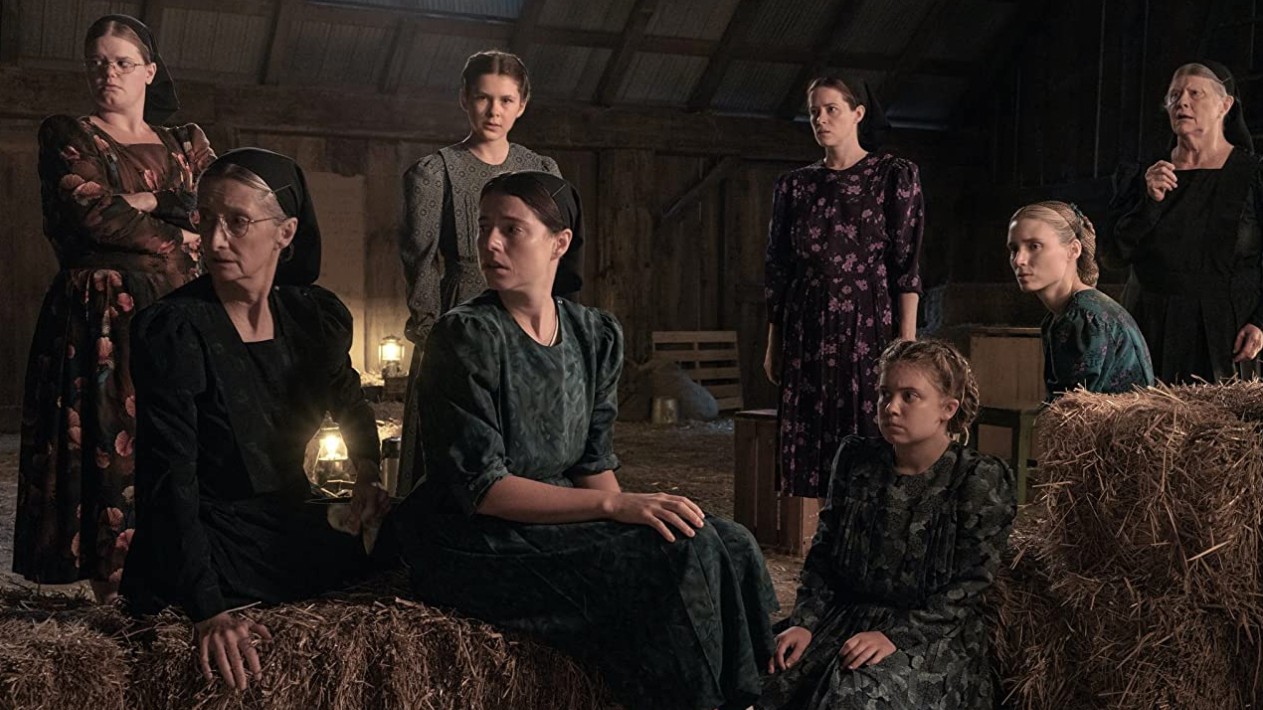It’s unfair She Said and Women Talking have to be out within a month of each other. The movies are going to be confused for one another, and unfortunately share some truly heartbreaking similarities. But both deserved to be seen for different reasons. And, the more Women Talking we see on screen, the more we learn something from new voices that never got a chance to say something before.
It’s 2010, but in a Mennonite cult, it might as well be like 1700. A host of women in the colony have become fed up with their truly awful predicament: they are drugged and raped repeatedly, starting at an early age. After voting, a group of women lock themselves in a cabin to figure out what the Mennonite women are going to do, including Ona (Rooney Mara), Salome (Claire Foy), Mariche (Jessie Buckley), Agata (Judith Ivey), and Greta (Sheila McCarthy), with supportive male August (Ben Whishaw) there to take notes.
Though She Said and Women Talking are now forever linked. I find Sarah Polley’s film has more in common with Sidney Lumet’s 12 Angry Men. This is 12 Angry Women, the sequel. Sequestered, these ladies have to dish out the sentence to the cult, and really intellectually talk it out. Compared to 12 Angry Men, there’s more nuance to these women, but they’re still representations of post traumatic feelings women are likely to have. Claire Foy is anger: consumed by revenge. Jessie Buckley is the cynic, poking holes in everyone’s plans. Sheila McCarthy is the empath, trying to sympathize with everyone. Judith Ivey would be the traditionalist, using the way things are to guide her, specifically religion. And Rooney Mara is your Henry Fonda: a dreamer and intellectual working through each of these people’s feelings to arrive at the right answer. As Sarah Polley digs deeper into each person, we learn that these feelings usually come from intense personal positions/biases that have to be understood, and eventually overcome. Some can be overcome easily, and still others might take the whole night and maybe never find the peace they are looking for. Despite feeling forced for the audience’s sake, there’s still no denying the power of Women Talking’s discussions when the movie lets the actors really cook.
Every person in that barn gets a chance to shine in some sort of way. I was thinking about which scenes will end up the Oscar clip for the host of acting nominations Women Talking is going for. Claire Foy has the most moments: righteous anger always looks great in clip form. I think the always great Jessie Buckley is the winner here though; she really gives a lot of depth and hurt to Mariche’s cynicism that naturally lead to the movie’s best moments. Ben Whishaw is maybe the surprising runner up to Buckley; he really quietly emotionally sneaks up on you with his sweet, somber performance. Judith Ivey and Sheila McCarthy give great thespian support as the matriarchs of this conversation. And for the younger generation: Michelle McLeod and August Winter (in a nearly wordless performance) give us an idea of who’s going to be the character actors of the future with some great work. Rooney Mara is the glue person, letting all these other people cook then quietly moving the scenes along with a soft empathy and mostly avoiding sounding like a plot driver all the time. These amazing actors know how special a cast like this is, and really sell the scenes where they get to verbally spar with one another.
Heartbreakingly, Women Talking is based on a real story from Bolivia. So while the movie is designed to entertain audiences, it’s also a cruel reminder we’re less than 20 years removed from serial rapes happening to hundreds of women in a patriarchal dominated society. Sarah Polley’s movie is also a reminder that this behavior is learned, and maybe more importantly, can be unlearned in time. We can hope.

